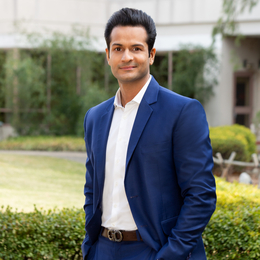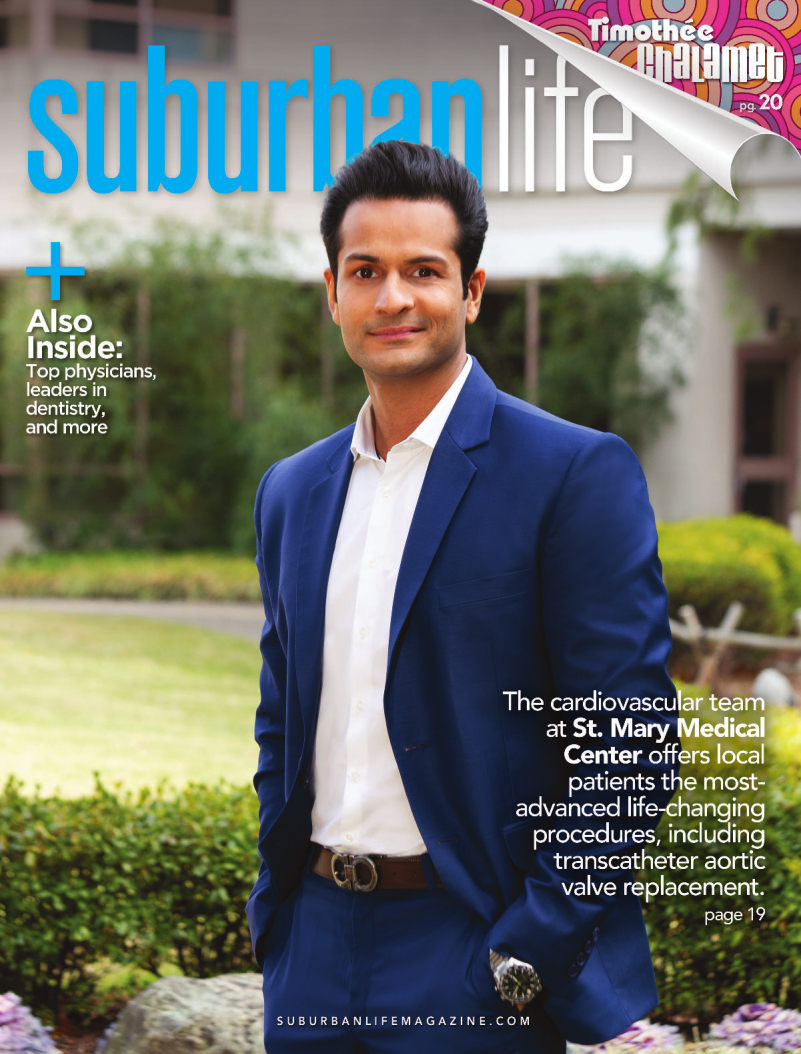
Heart’s In the Right Place
The cardiovascular team at St. Mary Medical Center offers local patients the most-advanced life-changing procedures, including transcatheter aortic valve replacement.
The old saying that “age is just a number” certainly seems to apply to Newtown resident Larry Hurst. At 88, Hurst is more active than many people 30 or 40 years younger than him. His exercise regimen includes regular trips to the gym, Tai chi classes with his wife, and taking walks around their home in Pennswood Village.
Last year, however, Hurst was slowing down over the course of a six-month period, a development he attributed to his age finally catching up to him. He was experiencing shortness of breath and fatigue, and was going to bed earlier at night and sleeping in later in the morning. He didn’t believe it to be anything too serious—until his annual checkup. Hurst’s primary care doctor referred him to the cardiovascular team at St. Mary Medical Center for further evaluation, and an echocardiogram and CT scan revealed severe tightening of his aortic valve.
“They looked at some pictures and said, ‘You have some pretty severe aortic stenosis, and it’s potentially blocking the flow of blood from the heart to the rest of the body. We have to do something about it,’” Hurst recalls. “It came as a complete surprise. … They really wanted to replace that valve. So I said, ‘Thank you and yes, please.’ Without that, I might not be here today and my wife would have been left wondering what happened.”
In October 2024, Hurst underwent transcatheter aortic valve replacement (TAVR), a minimally invasive procedure to replace an aortic valve that is not opening fully. TAVR uses smaller incisions than open-heart surgery, and as a result patients experience less postoperative pain and have shorter hospital stays.
Hitesh Raheja, M.D., a structural and interventional cardiologist at St. Mary, explains that TAVR has been in use since around 2010 and has become common over the past five years.
“Basically we go through the groin and up to the heart to replace the aortic valve, without opening the chest or going inside the heart,” Dr. Raheja says. “The main advantage of the procedure is that most of our patients go home the next day and can resume their normal activities.”
Hurst could not have been happier with his results.
“I had two incisions, one on either side in the groin, and they healed pretty quickly,” he says. “There was no damage to my chest, and I didn’t feel a thing. It’s a wonderful modern procedure. They kept me overnight for observation and the next day I went home with no pain. I would definitely recommend the team at St. Mary.”
Dr. Raheja adds that TAVR is an excellent option for patients ages 70 and older, as well as for younger patients who are not good candidates for open-heart surgery because of their weight or high blood pressure.
“If you wanted to replace a heart valve in someone who was not a good surgical candidate in the past, there were no other options,” he says. “The patient just eventually went into heart failure and then died. But with this transcatheter treatment, we’re able to offer aortic valve replacement. In many cases, the results are similar to—and even better than—open-heart surgery. ”
Dr. Raheja, who joined St. Mary’s team last summer, believes the hospital’s commitment to advanced technology and surgical excellence makes it an ideal destination for structural and interventional cardiology procedures—TAVR in particular. He continues to monitor Hurst, who is thriving post-surgery.
“The problem with aortic stenosis is the symptoms,” Dr. Raheja says. “[If not treated], eventually you will go into heart failure and die. But also, if you have tight aortic valves, other surgeries will not be done because [of the potential risks from] anesthesia. [Hurst] was not able to have the hernia repair and cataract surgeries he needed. After his TAVR, he was able to have those procedures done. He can walk better and exercise more, is sleeping better, and is full of energy. He feels like a new person.”
St. Mary Medical Center
1201 Newtown-Langhorne Road
Langhorne, PA 19047
(215) 710-2000
trinityhealthma.org
1201 Newtown-Langhorne Road
Langhorne, PA 19047
(215) 710-2000
trinityhealthma.org
Photo by Alison Dunlap
Published (and copyrighted) in Suburban Life magazine, February 2025.



